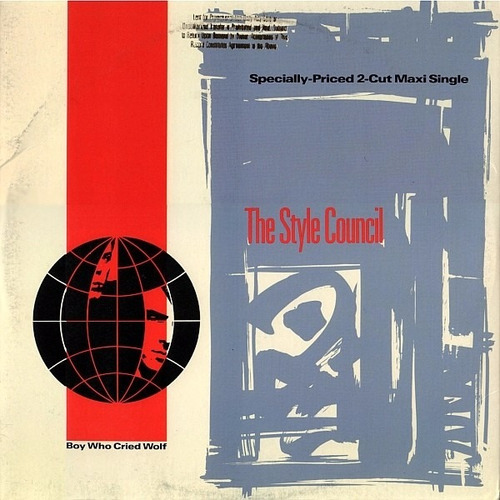

Confessions Of A Pop Group was the result and it rang the death knell on insurrection and hope for a better life in a series of experimental songs mapping his personal fallibility and frailty. In 1987, Margaret Thatcher took the Conservatives to their third consecutive general election win, making her the first PM to do so since 1820 and the political idealism that had galvanised Weller and his followers was quashed.ĭejected, he distanced himself from Red Wedge – the movement finally disbanded in 1990 – and turning his back on organised politics, went into the studio to score his despondency. “You don’t have to take this crap,” he shouts on ‘Walls Come Tumbling Down’, the record’s jubilant call to arms and real change was palpable. The Style Council – line-up completed by Mick Talbot, Dee C Lee and Steve White – performed at Live Aid and their second album, Our Favourite Shop, which roared with the passion and anger of the socialist cause hit the top spot. Just three years earlier Paul Weller had been spearheading Red Wedge, the left wing pressure group of musicians encouraging the youth to vote. So we thought, if this is going to be our last time, we better make sure it counts.” “It wouldn’t have mattered what we put out, it would have bombed. “There was a sense our time was up,” says Paul Weller. Give it a listen today though and you’ll hear Paul Weller at his most artistically brave, intimate and socially astute delivering a state of the nation address as fierce as any of his work with The Jam, exposing his inner workings more than any other chart bound pop singer before or since and wilfully shattering notions of high and low art with references to Debussy, Satie, the Swingle Singers, Osiris and erotic pulp fiction. Too artful and direct for the mainstream with its piano suites and political polemics – Bros’ ‘I Owe You Nothing’ topped the singles chart Nite Flight, a compilation of quiet storm soul by George Benson, Alexander O’Neal, Luther Vandross et al the album one – Confessions Of A Pop Group was consigned to the bargain bins.

When the album stalled at Number 15 – their previous three all having charted at Number 1 or 2 – it sparked the end of their relationship with their record label Polydor who refused to release its follow up. On 20 June 1988, The Style Council issued Confessions Of A Pop Group to mainly scathing reviews.


 0 kommentar(er)
0 kommentar(er)
